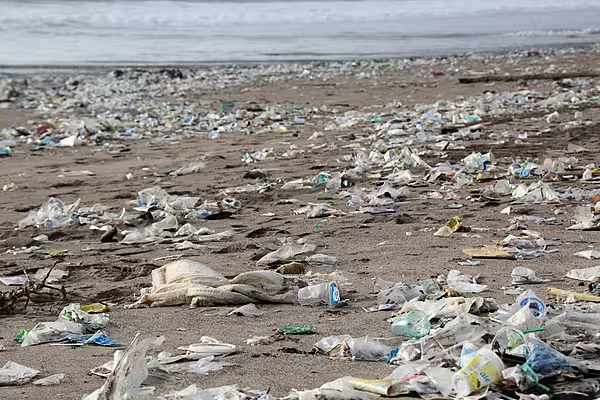Throw-away plastic items such as straws and polystyrene cups will be banned in the European Union by 2021, EU officials agreed on Wednesday, as they passed measures to cut plastic use in a bid to reduce marine litter.
Negotiators from the European Parliament and for the 28 EU countries agreed a list of 10 single-use plastic products with readily available alternatives that will be banned.
The items include cotton buds, cutlery, plates, straws, drink stirrers, sticks for balloons and food containers made of expanded polystyrene.
For other plastic items, such as food containers and drinks cups and lids, the focus will be on limiting their use and setting clean-up obligations in some cases for manufacturers.
All plastic bottles will have to have at least 30% recycled content by 2030.
Producers of tobacco filters containing plastic will have to cover the costs for public collection of cigarette stubs.
A Significant Step
"We have all heard the warning by the World Economic Forum and others that, measured by weight, there will be more plastic than fish in the world's oceans by 2050 if we continue dumping plastic in the sea at the present rate," Austria's sustainability minister Elisabeth Koestinger said.
Austria, which holds the rotating EU presidency, led talks on behalf of the 28 EU members.
Environmental campaign group Greenpeace hailed the measures as a significant step forward in tackling plastic pollution, but said they fell short in certain areas.
There was no EU-wide target to reduce consumption of food containers and cups, no obligation for EU countries to adopt targets, and a requirement only by 2029 to ensure 90% of plastic bottles are collected separately, Greenpeace said.
The EU recycles only a quarter of the 25 million tonnes of plastics waste it produces per year.
China's decision to stop processing waste coupled with growing alarm over damage to oceans has pushed the continent to end reliance on developing countries to deal with its waste.
News by Reuters, edited by ESM. Click subscribe to sign up to ESM: European Supermarket Magazine.











